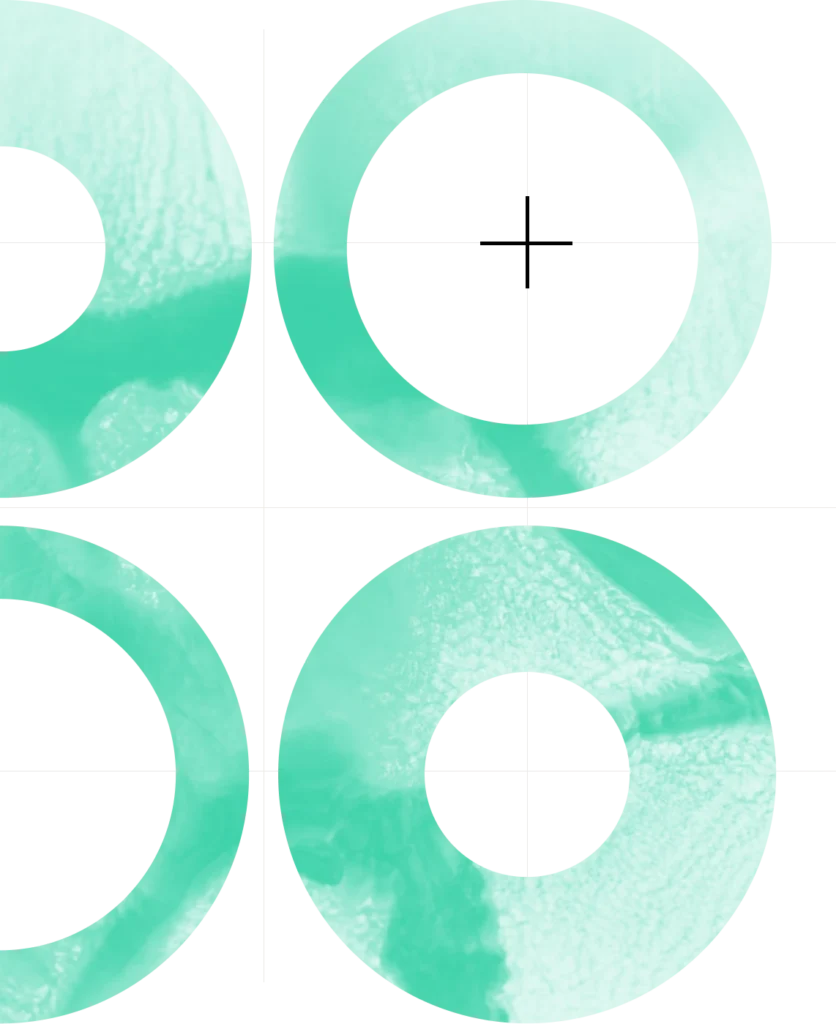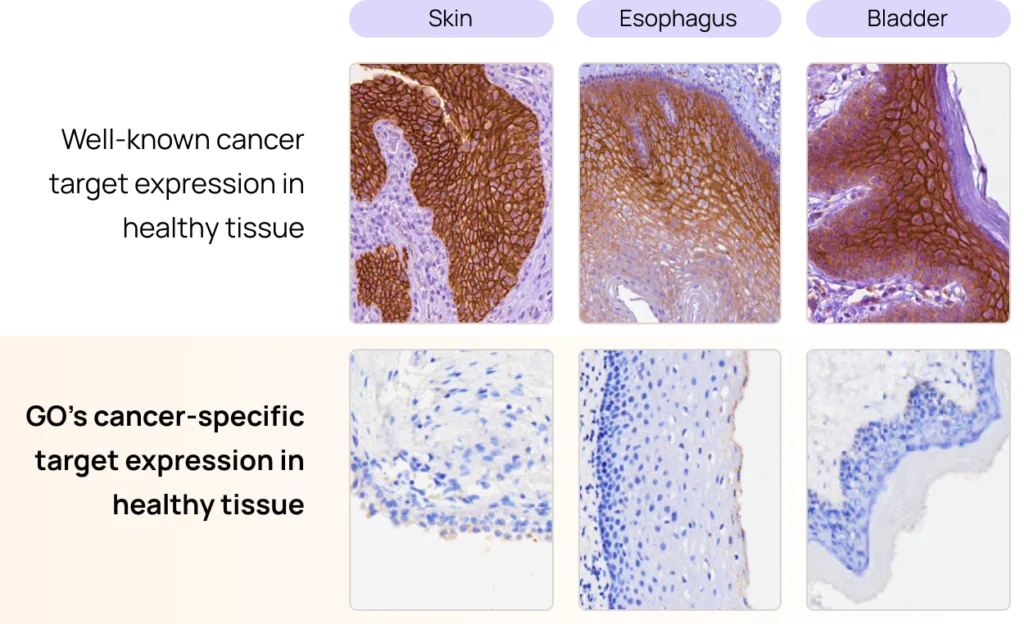Our Science
Super-clean targets mean better therapies
GO identifies the super-clean targets that will power the next wave of solid tumor therapies for partners, clinicians, and patients.

Solving the target problem
Opening clean access to solid tumors is key to unleashing the next wave of advanced therapies.
Existing targets of advanced solid tumor therapies are unsuitable because they come with major therapeutic baggage: toxicity. GO ingeniously solves the problem with its novel approach for identifying super-clean targets – sugar-based molecules called truncated O-glycans – and the antibodies against them that will vastly improve the tolerability of these powerful therapies.
Limited by toxicity
Existing targets aren’t tumor-specific

Most advanced solid tumor therapies, such as bispecific T cell-engaging antibodies, antibody-drug conjugates (ADCs), and CAR T cells – target tumor-associated antigens, such as HER2, EpCAM, or TOP1, that are also expressed by healthy tissues. This results in toxic adverse events and intolerabilities for patients.
The key challenge to improving the safety of these therapies – and with it, the number of patients who can benefit from them – is identifying super-clean targets: antigens found only on tumor cells, not healthy cells.
Our approach
Going after sweet, cancer-specific targets
Truncated O-glycans are tumor-specific
Most carcinomas display truncated O-glycans (Tn, STn) that are not found on any healthy cells. Targeting these tumor-specific antigens could improve the safety of solid tumor therapies, but it’s not easy: antibodies against O-glycans have affinities too low, and often have the wrong isotype, to be drug candidates. GO addresses the most challenging and complex aspect of this problem: identifying glycopeptide (truncated O-glycan+peptide) epitopes that elicit high-affinity antibodies well-suited to drug development.
The ingenuity to find Tn and STn
Built on our proprietary glycobiology knowledge base, GO’s platform mines the O-glycoproteome for cancer-specific Tn and STn epitopes, then applies clinical data, bioinformatics analysis and proprietary algorithms to select the best antigens. The platform also generates, identifies, and selects antibodies against them – producing the “key ingredients” for bispecifics, ADCs, CAR T cells, and other next-generation cancer therapies.
Identifying the most likely responders
Truncated O-glycans occur on 50-80% of all carcinomas, with about one-third of tumors expressing high levels. GO develops each pipeline antibody into a companion diagnostic that detects high-expressing tumors. Our diagnostics are highly accurate at identifying patients likely to be high responders to therapies based on that same antibody.
Better options for treatment
Clean targets benefit patients & clinicians
They need more tolerable therapeutic options
Despite the advent of new therapeutic modalities, the standard of care for most cancer patients hasn’t changed much in recent decades; toxic radiotherapy and chemotherapies remain the mainstays. GO’s technology offers the potential for potent, low-toxicity options patients and clinicians seek.
They want therapies that work
Clinicians and patients want to choose therapies that work, not endure therapies that don’t. The companion diagnostic we develop for each GO-targeted therapy will help physicians identify which patients are likely to respond to our therapeutics.
Our Pipeline

A growing portfolio of antigens and antibodies
GO is developing a sizable portfolio of programs covering most major solid tumor types.